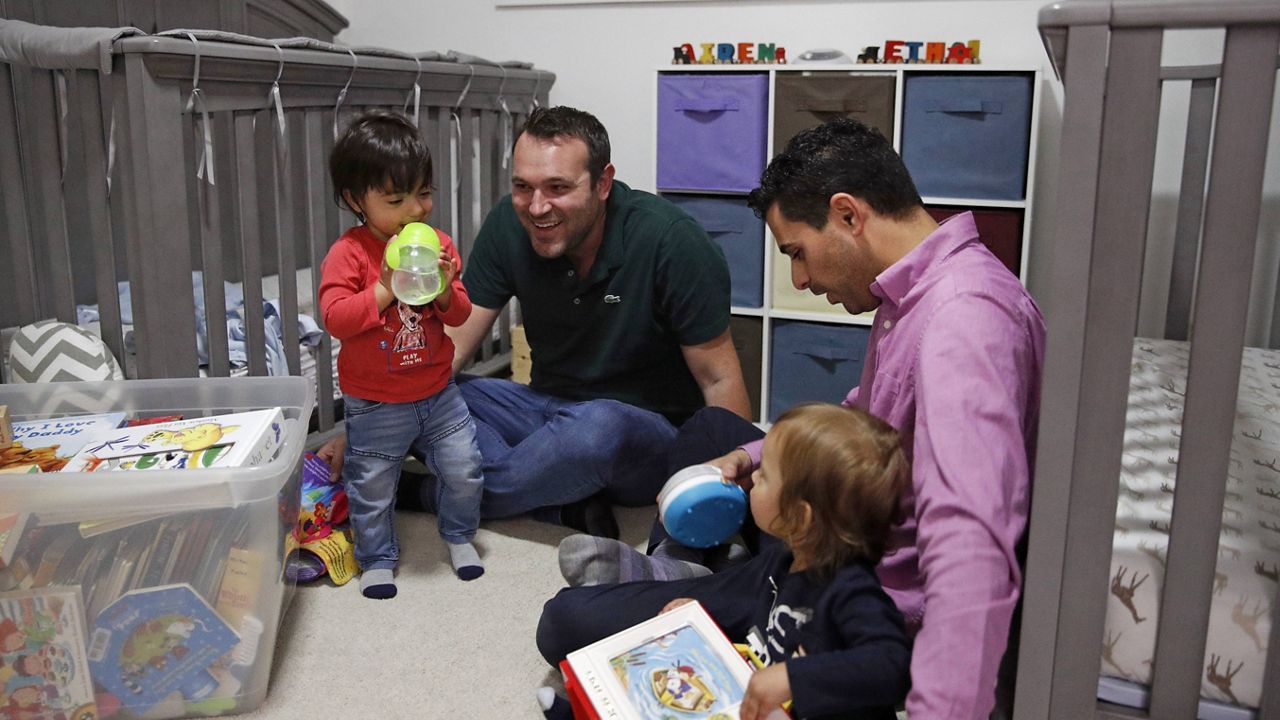LOS ANGELES (CNS) — A federal appeals court Friday affirmed the citizenship of a twin son of a Los Angeles-based same-sex couple, ruling that the child has been an American citizen since birth.
The unanimous ruling by a three-judge panel of the U.S. 9th Circuit Court of Appeals upheld last year's lower-court ruling that the U.S. Department of State had no legitimate reason to deny birthright citizenship to 4-year-old Ethan Dvash-Banks.
A State Department spokesperson said the department is aware of the ruling and is reviewing the decision with the U.S. Department of Justice.
Lawyers for Andrew and Elad Dvash-Banks filed suit in January 2018 against the federal government, alleging that because one son was conceived with the genetic material of a U.S. citizen and the other son with the genetic material of his Israeli-born partner, one of the twins was being treated by the government as a U.S. citizen while the other was forced to enter the country on a tourist visa.
"We are overjoyed and gratified by today's decision that our twin sons should be treated the same as the children of all other marriages, and we hope this decision will help other LGBTQ families secure the equal rights they deserve," Andrew and Elad Dvash-Banks said in a statement.
The lawsuit, brought on the married couple's behalf in Los Angeles federal court by Immigration Equality, an LGBTQ immigrant rights organization, alleged that the State Department denied citizenship to the child because the boy did not have a biological connection to the parent with U.S. citizenship.
"After years of the federal government denying Andrew and Elad's rights as a married couple, the Ninth Circuit has unequivocally ruled in the family's favor," said Aaron C. Morris, executive director of Immigration Equality and co-counsel for the family.
"No longer will these parents have to worry that their twin sons will be treated as if they were born out of wedlock simply because they have two fathers. This decision demonstrates yet again that it is far past time for the State Department to change its discriminatory policy."
While the lower court judge found that as a child born to a married U.S. citizen parent, Ethan is entitled to birthright citizenship, the decision did not order the State Department to change its policy.



